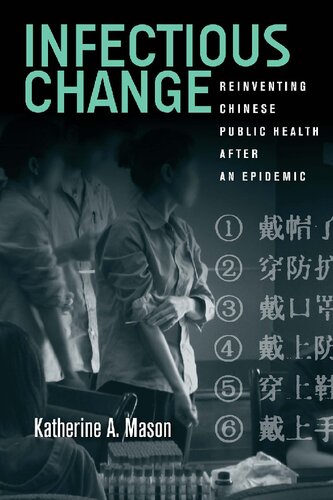

Most ebook files are in PDF format, so you can easily read them using various software such as Foxit Reader or directly on the Google Chrome browser.
Some ebook files are released by publishers in other formats such as .awz, .mobi, .epub, .fb2, etc. You may need to install specific software to read these formats on mobile/PC, such as Calibre.
Please read the tutorial at this link: https://ebookbell.com/faq
We offer FREE conversion to the popular formats you request; however, this may take some time. Therefore, right after payment, please email us, and we will try to provide the service as quickly as possible.
For some exceptional file formats or broken links (if any), please refrain from opening any disputes. Instead, email us first, and we will try to assist within a maximum of 6 hours.
EbookBell Team

4.0
66 reviewsIn February 2003, a Chinese physician crossed the border between mainland China and Hong Kong, spreading Severe Acute Respiratory Syndrome (SARS)a novel flu-like virusto over a dozen international hotel guests. SARS went on to kill about 800 people and sicken 8,000 worldwide. By July 2003 the disease had disappeared, but it left an indelible change on public health in China. The Chinese public health system, once famous for its grassroots, low-technology approach, was transformed into a globally-oriented, research-based, scientific endeavor.
In Infectious Change, Katherine A. Mason investigates local Chinese public health institutions in Southeastern China, examining how the outbreak of SARS re-imagined public health as a professionalized, biomedicalized, and technological machineone that frequently failed to serve the Chinese people. Mason recounts the rapid transformation as young, highly-trained biomedical scientists flooded into local public health institutions, replacing bureaucratic government inspectors who had dominated the field for decades. Infectious Change grapples with how public health in China was reinvented into a prestigious profession in which global impact and recognition were paramountand service to vulnerable local communities was secondary.